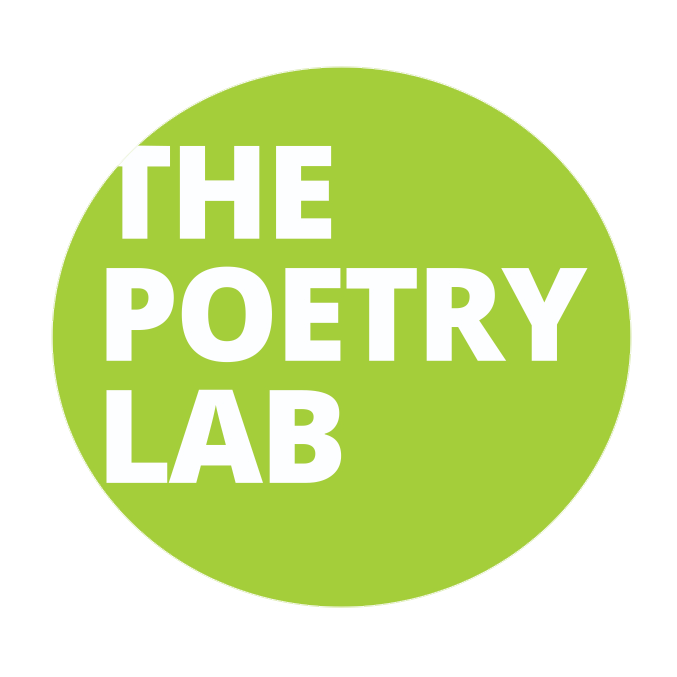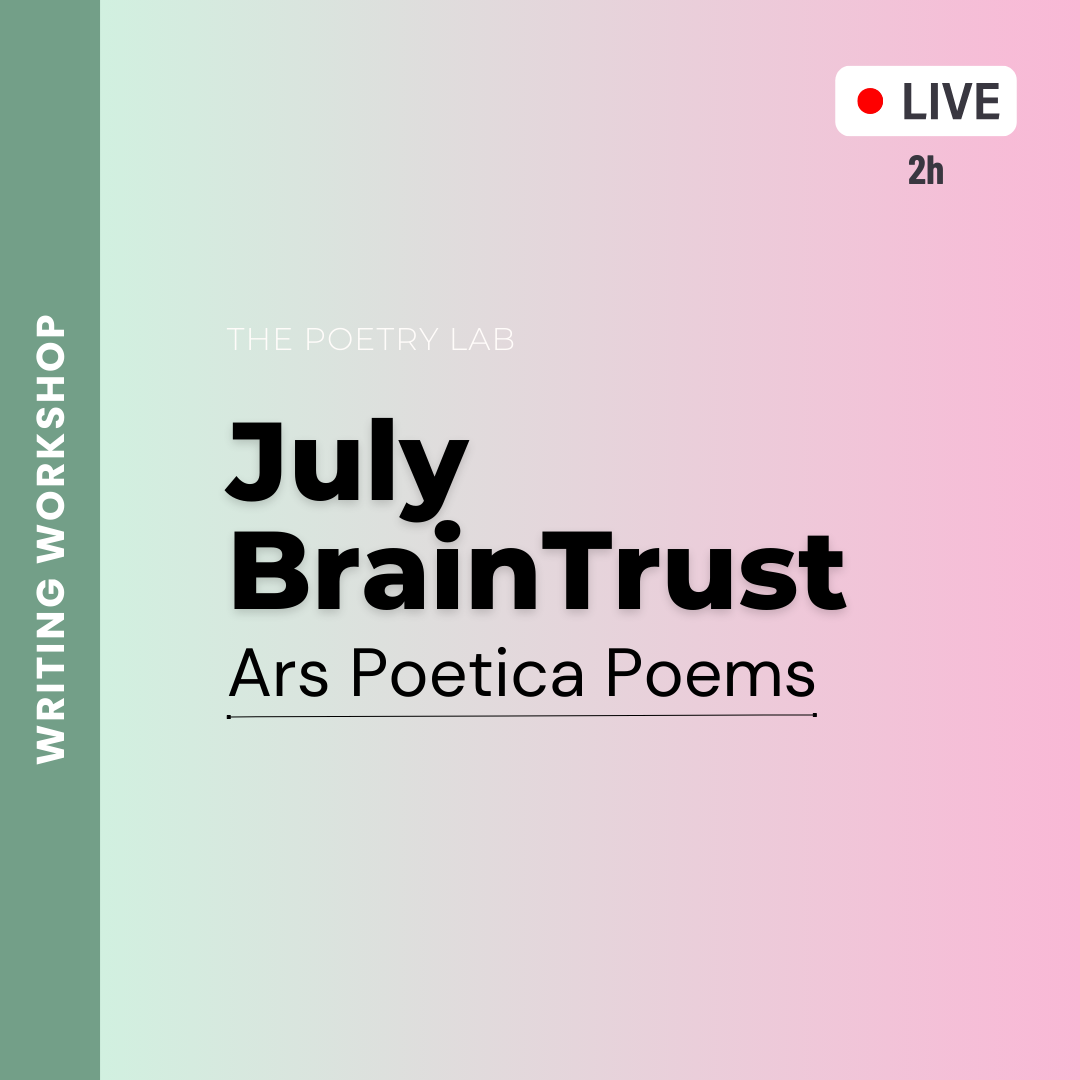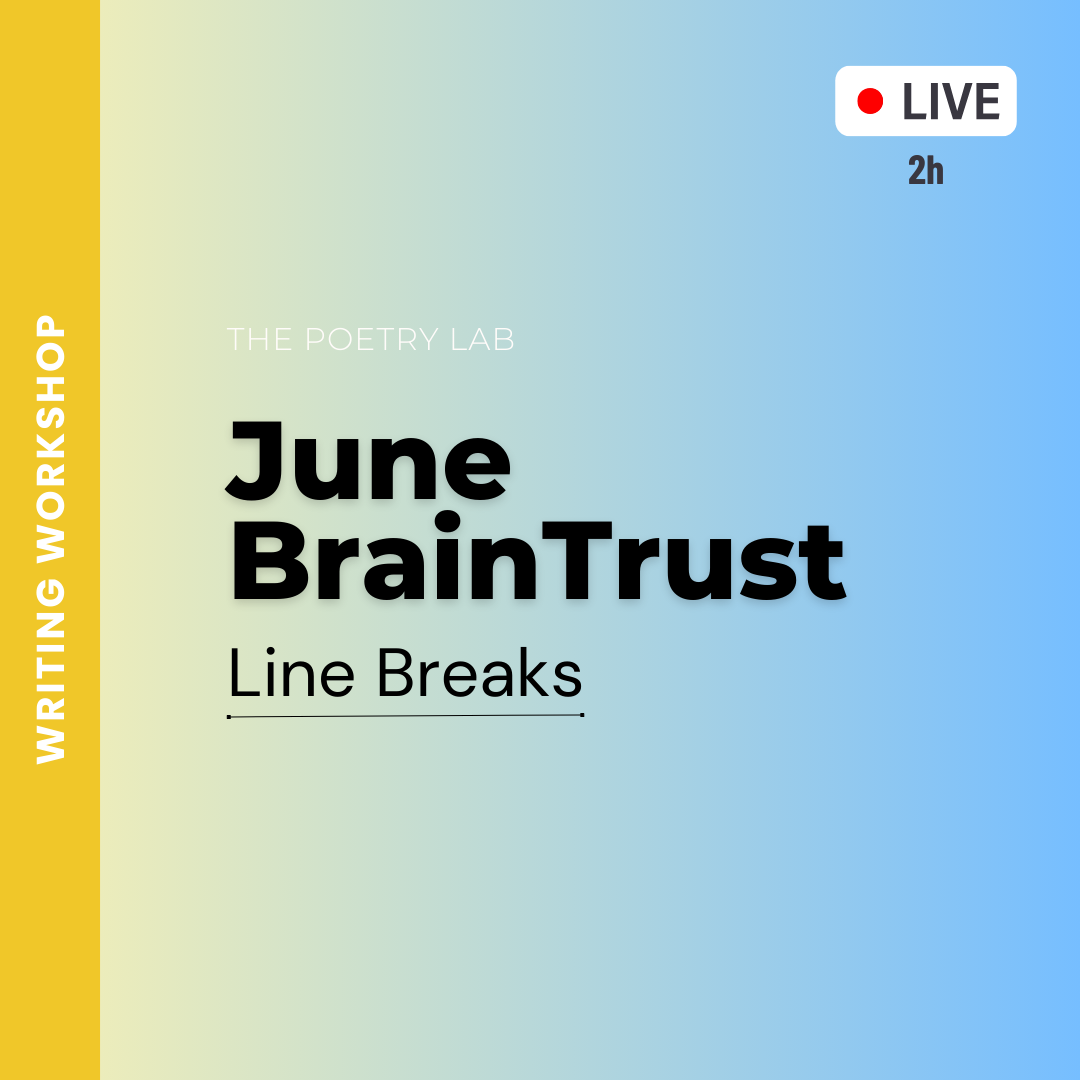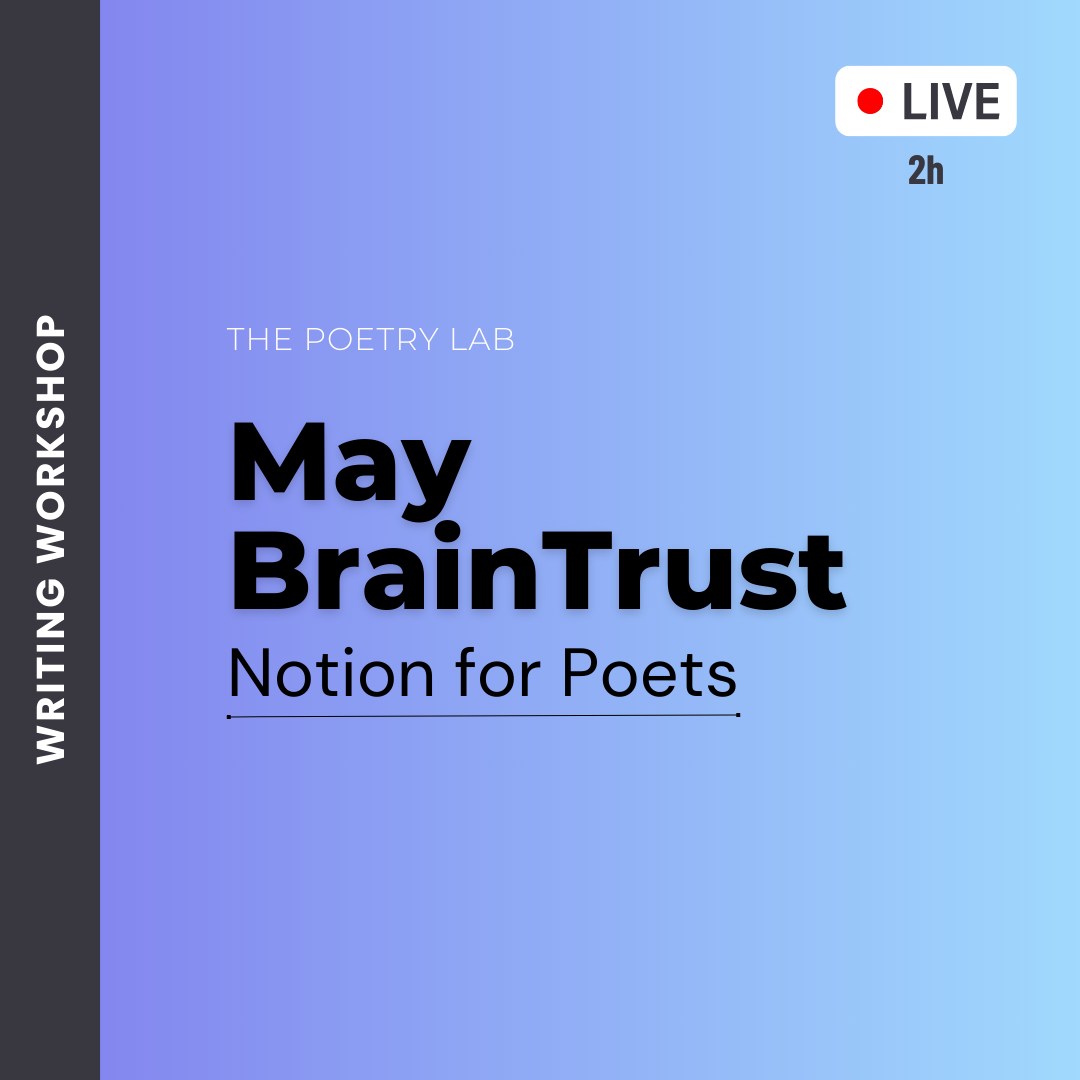Where Is The Evidence? Writing Speculative Poems
One of the things I remember about growing up with an extended family who received visitors on a regular basis, was being sent away “to play” when adults gathered for conversation. I felt confused and excluded, not understanding why I couldn't hear what they said.
I remember one time in particular. A distant relative came to visit, and I was at home alone with my mom who sent me to my room to play. I complied but already had a plan to go into the kitchen as many times as I could, pretending to need a snack or a glass of water. I lingered as much as possible, so I could catch snippets of conversation.
Back in my room, I tried to decipher what I’d heard. It usually went something like: “I wonder if X is the husband. Maybe they had a fight? Or maybe she has a lover, and this is why I’m not allowed in the room.”
I made up a whole story about this person in my mind, and by the time they left, I was convinced that what I had imagined was actually what had happened. I also asked my mother why this person came and why they needed privacy. She reluctantly shared a very rated-G version of the story, but I kept thinking my version was juicier.
The Opportunity Presented By The Unknown
Wondering, asking questions and trying to fill in the blanks when we don’t have all the information is something that we humans love to do. It’s called speculation, which, according to the Cambridge Dictionary, is “the activity of guessing possible answers to a question without having enough information to be certain.”
The unknown can be a source of anxiety and distress, but for us creatives, it offers an opportunity to imagine and explore, to invent and remake. It also gives us the opportunity to create some distance, especially if we’re writing about something painful, and to look at it from a different point of view.
It’s like the activity in school when we sometimes are assigned in school where the teacher asks us to write a different ending for a story and all the different versions we can come up with. Whenever I’ve given this exercise to my students, the class’s mood completely changes to a more playful one, where there’s an opportunity to experiment without judgment and to think outside of norms and constraints.
Speculative Poems
Many of us have read novels and short stories that have a speculative lens (sci-fi and fantasy, among other categories), LOR anyone? But in poetry, the speculative is not something often talked about, at least not as a specific genre.
Like in fiction, speculative poems also explore themes from fantasy, myth, and fairy tales. The subjects and characters from these stories have inspired poets for centuries. One well-known example is Shakespeare’s A Midsummer Night’s Dream, with it’s fairy tale-like imagery:
And I serve the fairy queen,
To dew her orbs upon the green:
The cowslips tall her pensioners be;
In their gold coats spots you see;
Another, is Christina Rosetti’s “The Goblin Market,” set in a fantasy-like place with roots in the concrete world of the author:
Morning and evening
Maids heard the goblins cry:
“Come buy our orchard fruits,
Come buy, come buy:
Apples and quinces,
Greek and Roman mythology, Norse mythology, fairy tales like “Cinderella” and “Little Red Riding Hood,” among others, have been reimagined by poets from a variety of perspectives.
Jessica Q. Stark’s beautiful poem “My Mother Reads Me Little Red Riding Hood as a Young Girl” is a great example of how we can re-frame some of these stories within the Asian American diaspora and questions traditional gender norms:
I’d listen to her work her way through its drama: the
little girl’s errors hitched to curiosity, her wandering hands, the
way the wolf and the girl had much more in common than not—both hungry beasts seeking nutrition and love and beauty. Most of
my childhood was a wander, but I don’t know when she turned wolf, whatfinally set her off though the woods alone.
Another great poem is Patricia Smith’s “Medusa,” where this maligned character from Greek mythology shows her sexual agency and defiance before Aphrodite punishes her for her beauty:
Poseidon was easier than most.
He calls himself a god,
but he fell beneath my fingers
with more shaking than any mortal.
He wept when my robe fell from my shoulders.
“Medusa” is a persona poem, written from the perspective of the character of Medusa. A persona poem is a speculative poem because it allows us to put ourselves in someone else’s place and to imagine what they would think or say in a specific situation.
Speculative Poetry Resources 📑
Interested in learning more about Persona Poetry? Check out our recent article, “Embodying the Major Arcana: Tarot & Persona Poetry.”
There are many other examples as well as journals dedicated to speculative poems. Poets & Writers has a comprehensive list of journals featuring speculative poetry.
There’s even a Science Fiction Poetry Association that gives out an annual award (the Elgin Awards) for books and chapbooks.
Speculative Poetry Prompts
While the speculative as genre has its perks and allows us to experiment, to be playful, and to create new worlds and characters, the act of speculating itself is a tool.
Speculating allows us to expand our own writing and to try out new ways of entering our poems, particularly when the subject is a difficult one, or when we can’t remember all the details associated with an event.
I offer three prompts (2 generative, 1 for revision) for you to play with. I recommend you set a timer and just write without judgment or checking to see if what you’re saying makes sense. You can do that later when you revise.
-
Option 1: Write a poem where you include a dialogue between yourself and someone you’ve always wanted to meet (a celebrity, a writer, a historical character).
Option 2: Go back to a conversation you had where you felt you could’ve said something different and rewrite the conversation as you would have wanted it to be.
Option 3: Write a conversation where the dialogue is not explicit but implied, like in this poem by Forrest Gander.
-
Write a poem where you start the first line with “If I…” or “What if I” to explore different possibilities of an event or situation and repeat that phrase at the beginning of each stanza.
For inspiration, listen to Stanley Kunitz read his poem “King of the River.”
-
Find a poem you’ve been struggling with and rewrite it from a different point of view. If the poem is in the first person, try writing it in the third person and see how that shifts things around. Maybe that third person POV leads to another path you hadn’t thought of.
/ related
// classes
This article was published on November 14, 2024. Written by:















